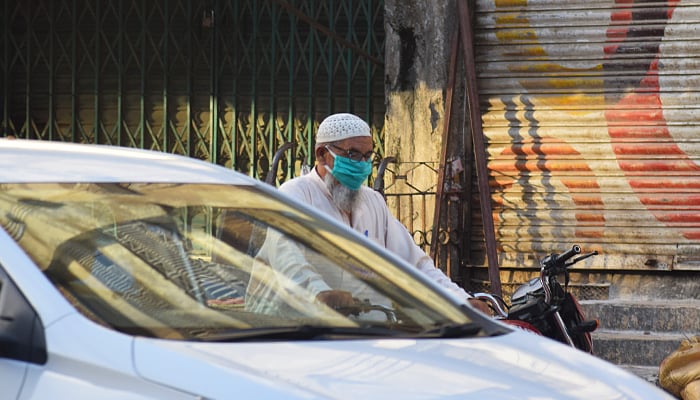Survey shows whopping majority thinks inhaling steam, ablution wards off COVID-19
Some 82% of the people surveyed believe preforming wudu, or ablution, five times a day helps protect from the virus
A huge majority of people in Pakistan think that inhaling steam and performing ablution wards off the COVID-19 pandemic, a recent survey by a private data-supplying company Ipsos Tracker shows.
The social media analytics report, which surveyed over 1,000 people in Pakistan's urban and rural areas, indicates how the government's public awareness messages related to the ongoing coronavirus pandemic and its precautions have failed to reach a large chunk of the population.
A whopping 82% of those polled believed they can remain protected from the virus if they preform wudu, or ablution, five times a day, while 67% insisted on inhaling steam regularly to ward off the sickness.
As per its findings, 89% of those surveyed washed their hands regularly after returning home. However, one-third had not stopped shaking hands and physical contacts.
For the public at large, information regarding the deadly virus was reaching them via local news channels and private sector companies, the report states. A meager 5% could recall government messages.
Troublingly, only 38% could correctly name the official helpline (1166) to report COVID-19 symptoms. Some, around 2%, instead, believed that the number to call was 911.
Then, there were religious and scientific misconceptions related to the virus, which were widespread.
Another 67% held the belief that since God has control over the spread, congregational prayers cannot be a source of the infection.
YouTube, the report adds, played a significant role in disseminating such religious misconceptions. People surveyed in Khyber Pakhtunkhwa were more prone to holding such views.
-
Security forces gun down 30 terrorists in multiple IBOs in KP: ISPR
-
MQM-P calls for new province in Sindh
-
US report validates Pakistan military edge over India: PM
-
Banned TTP poses serious threat to Pakistan security: UNSC panel
-
CM Afridi clarifies remarks on by-poll after ECP requests army deployment
-
Dubai sees 3.2m Pakistani passengers in 2025 as airport sets new milestone
-
Security forces kill 23 Indian proxy terrorists in KP's Kurram
-
Pakistan to construct island to boost oil exploration: report












